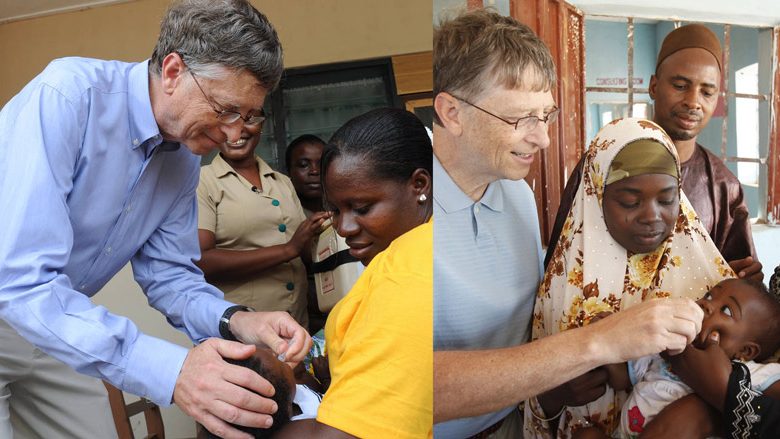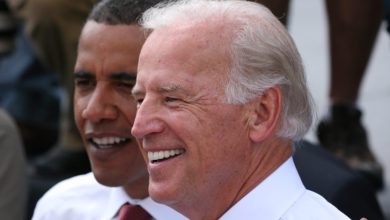Bill Gates’ Oral Vaccine Triggers Polio Outbreak in Africa

An oral vaccine developed by Microsoft co-founder Bill Gates’ foundation has triggered a polio outbreak in the African country Burundi, according to reports.
Health officials have reported that seven children have been paralyzed by the virus so far.
The children were paralyzed by vaccine-derived polio linked to the new nOPV2 polio vaccine, according to health officials in the Democratic Republic of the Congo and Burundi and the Global Polio Eradication Initiative (GPEI)
The nOPV2 polio vaccine was developed by the Bill & Melinda Gates Foundation.
The Bill & Melinda Gates Foundation, a GPEI partner, funded the development and clinical trials for the nOPV2 vaccine.
Burundi has now declared a national emergency after confirming eight cases of the virus, the World Health Organization (WHO) said in a statement.
Five samples have also been discovered during the environmental surveillance of wastewater.
Burundi health authorities also plan to work with the WHO and GPEI to do risk assessments to determine the extent of the outbreak of the vaccine-derived virus.
And they are increasing polio surveillance, with WHO employees collecting additional water samples and possibly opening new environmental surveillance sites.
“We are disappointed,” said Dr. Ananda Bandyopadhyay, deputy director for technology, research, and analytics on the Gates Foundation polio team.
“Any such outbreak is disappointing,” he said, according to a Stat News report.
Vaccine-derived polio outbreaks are not a surprise with the nOPV2 vaccine, GPEI said.
“While detection of these outbreaks is a tragedy for the families and communities affected, it is not unexpected with wider use of the vaccine,” it said on its website.
The oral vaccines, administered in much of Africa, the Middle East, and parts of Asia, contain a live-but-weakened form of the polio virus modified to minimize its ability to paralyze.
Children vaccinated with the live oral vaccines shed the virus in their stool, which eventually ends up in sewage wastewater.
Particularly in places where sanitation is poor, the virus can move from child to child, which, GPEI said, is actually the point.
The viruses can move from person to person and “actually help protect the community” it says on its website.
However, as it continues to circulate over the course of 12 to 18 months, the attenuated virus in the live oral vaccine strains can revert to virulence, circulate, infect, and paralyze “in places with low immunization rates.”
These viruses are called circulating vaccine-derived poliovirus, or cVDPV.
Afghanistan and Pakistan now report more cases of paralysis from vaccine-derived polio than from the wild virus.
There have been several outbreaks of vaccine-derived infections across Africa.
According to a study in the BMJ, there were more than 1,000 children paralyzed in 2020 alone.
In 2022, 800 children developed paralytic polio from the vaccines.
Despite the fact that the polio vaccine was the root cause of the outbreak, the Burundi government is planning to launch a vaccination campaign within the next few weeks.
Health officials insist that it will still go ahead in an effort to safeguard all children under the age of seven.
“We are supporting the national efforts to ramp up polio vaccination to ensure no child is missed and faces polio’s debilitating impact,” said Dr. Matshidiso Moeti, WHO’s Africa director.
Polio is a highly infectious disease mostly spread through water and typically strikes children under five, according to ABC.
There is no treatment.
Although the oral vaccine used in the global effort to eradicate the disease is highly effective, it requires four doses.
The oral vaccine can also cause polio in about two to four children per 2 million doses.
In extremely rare cases, the weakened virus can also sometimes mutate into a more dangerous form and spark outbreaks, especially in places with poor sanitation and low vaccination levels.
Last year, cases linked to the oral vaccine turned up in rich countries including Britain, Israel, and the U.S. for the first time in years.
Officials began rolling out a new oral polio vaccine last year that they hoped would be less likely to mutate into a version able to trigger new outbreaks.
But the epidemic in Burundi — in addition to six cases in Congo — was found to have been sparked by the new oral vaccine.
Across Africa, more than 400 cases of polio last year were linked to the oral vaccine, including Congo, Nigeria, Ethiopia, and Zambia.
The disease also remains stubbornly entrenched in Pakistan and Afghanistan, where transmission has never been stopped.
Ironically, Africa is now free from “wild” polio.
The only cases of the virus are vaccine-induced.



